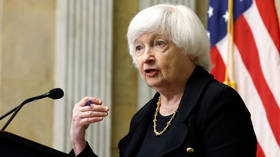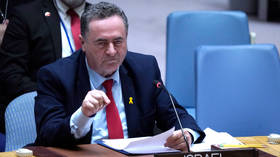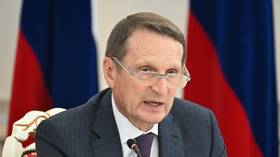Loans in Japanese currency in Russia
The Bank of Moscow has launched a pilot mortgage program allowing Russian homebuyers to take out their loans in the Japanese yen.
It’s a move to make cheaper mortgages available, with the programme looking to place the equivalent of $US 35 million in loans over the next three months.
The trial follows success of loans in Swiss francs, but both the Bank of Moscow and analysts are advising potential customers to be aware of the risks.
“As all the currency risk is transferred to the client, our job here is to explain all the possible outcomes to the client and it's their choice either to take the risk or to take a mortgage in more usual currency – roubles or dollars,” warned Alla Tsytovich from mortgage department of Bank of Moscow.
Changes in the global interest rate and currency environment are making possible significant reductions for those seeking mortgages in Russia.
Currently they are looking at interest rates of up to 12% from lenders. And if that is not making them take a sharp breath, then tightening loan conditions and an often difficult application process probably will.
But the Bank of Moscow is about to make available mortgages which could see them nearly halve their interest bill, by offering loans in the Japanese Yen at 6%.
It is one of the more stable global currencies with low national interest rates. But the bank admits that those taking out mortgages will be running the risk of currency fluctuations.
Other market players are even more sceptical. Oleg Vyugin, the head of MDM Bank and former head of Federal financial markets service says borrowing in foreign currencies can be dangerous for those who cannot hedge the risks.
“When you're working inside the Russian economy, which is rouble-oriented, it's more safe to pay off in roubles in order to avoid exchange risks. You have the inflationary and liquidity risks, but only professionals can take an additional exchange risk, i.e. those are able to hedge the risks,” explained Mr Vyugin.
For the time being, the rates on offer are highly attractive, particularly in light of the Rouble’s recent strong appreciation against nearly all major currencies.












